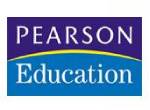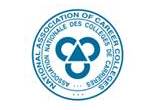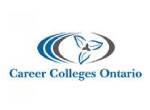Post Graduate Certification in Mental Health
( PGCMH )
❖ Abuse/Neglect
Learning Objectives
At the end of this course, the learner will be able to:
1. Assess client for abuse or neglect and intervene as appropriate
2. Identify risk factors for domestic, child, elder abuse/neglect, and sexual abuse
3. Plan interventions for victims/suspected victims of abuse
4. Counsel victims/suspected victims of abuse and their families on coping strategies
5. Provide a safe environment for the abused/neglected client
6. Evaluate client response to interventions
❖ Behavioral Interventions
Learning Objectives
At the end of this course, the learner will be able to:
1. Assess client's appearance, mood, and psychomotor behavior and identify/respond to inappropriate/abnormal behavior
2. Assist client with achieving and maintaining self-control of behavior (e.g., behavior modification)
3. Assist client to develop and use strategies to decrease anxiety
4. Orient the client to reality
5. Participate in group sessions (e.g., support groups)
6. Incorporate behavioral management techniques when caring for a client
7. Evaluate client's response to the treatment plan
❖ Coping Mechanisms
Learning Objectives
At the end of this course, the learner will be able to:
1. Assess client's support systems and available resources
2. Assess client's ability to adapt to temporary/permanent role changes
3. Assess client's reaction to a diagnosis of acute or chronic mental illness (e.g., rationalization, hopefulness, anger)
4. Assess client's ability to cope with life changes and provide support
5. Identify situations that may necessitate role changes for a client (e.g., a spouse with chronic illness, death of a parent)
6. Provide support to the client with unexpected altered body image (e.g., alopecia, amputation, burns)
7. Evaluate the constructive use of defense mechanisms by a client
8. Evaluate whether the client has successfully adapted to situational role changes (e.g., accept dependency on others)
❖ Crisis Intervention
Learning Objectives
At the end of this course, the learner will be able to:
1. Assess the potential for violence and use safety precautions
2. Identify the client in crisis
3. Use crisis intervention techniques to assist the client in coping
4. Apply knowledge of client psychopathology to crisis intervention
5. Guide the client to resources for recovery from a crisis (e.g., social supports)
❖ Cultural awareness/Cultural Influences on Health
Learning Objectives
At the end of this course, the learner will be able to:
1. Assess the importance of client culture/ethnicity when planning/providing/evaluating care
2. Recognize cultural issues that may impact the client's understanding/acceptance of a psychiatric diagnosis
3. Incorporate client cultural practices and beliefs when planning and providing care
4. Respect the cultural background/practices of the client
5. Evaluate and document how client language needs were met
❖ End of Life Care
Learning Objectives
At the end of this course, the learner will be able to:
1. Assess client's ability to cope with end-of-life interventions
2. Identify end-of-life needs of the client (e.g., financial concerns, fear, loss of control, role changes)
3. Recognize the need for and provide psychosocial support to the family/caregiver
4. Assist client in resolution of end-of-life issues
5. Provide end-of-life care and education to clients
❖ Family Dynamics
Learning Objectives
At the end of this course, the learner will be able to:
1. Assess barriers/stressors that impact family functioning (e.g., meeting client care needs, divorce)
2. Assess family dynamics to determine a plan of care
3. Assess parental techniques related to discipline
4. Encourage the client's participation in group/family therapy
5. Assist client to integrate new members into the family structure (e.g., new infant, blended family)
6. Evaluate resources available to assist family functioning
❖ Grief and Loss
Learning Objectives
At the end of this course, the learner will be able to:
1. Provide care for a client experiencing grief or loss
2. Support the client in anticipatory grieving
3. Inform the client of expected reactions to grief and loss (e.g., denial, fear)
4. Provide the client with resources to adjust to loss/bereavement (e.g., individual counseling, support groups)
5. Evaluate the client's coping and fears related to grief and loss
❖ Mental Health Concepts
Learning Objectives
At the end of this course, the learner will be able to:
1. Identify signs and symptoms of impaired cognition (e.g., memory loss, poor hygiene
2. Recognize signs and symptoms of acute and chronic mental illness (e.g., schizophrenia, depression, bipolar disorder)
3. Recognize client use of defense mechanisms
4. Assess client adherence to a treatment plan
5. Assess client for alterations in mood, judgment, cognition, and reasoning
6. Apply knowledge of client psychopathology to mental health concepts applied in individual/ group/family therapy
7. Provide care and education for acute and chronic psychosocial health issues (e.g., addictions/ dependencies, depression, dementia, eating disorders)
8. Evaluate client's ability to adhere to a treatment plan
9. Evaluate client's abnormal response to the aging process (e.g., depression)
❖ Religious and spiritual influence on health
Learning Objectives
At the end of this course, the learner will be able to:
1. Identify the emotional problems of client or client needs that are related to religious/spiritual beliefs (e.g., spiritual distress, a conflict between recommended treatment and beliefs)
2. Assess psychosocial, spiritual, and occupational factors affecting care and plan interventions
3. Assess and plan interventions that meet the client's emotional and spiritual needs
4. Evaluate whether the client's religious/spiritual needs are met
❖ Sensory/perceptual alterations
Learning Objectives
At the end of this course, the learner will be able to:
1. Identify time, place, and stimuli surrounding the appearance of symptoms
2. Assist client to develop strategies for dealing with sensory and thought disturbances
3. Provide care for a client experiencing visual, auditory, and cognitive distortions
4. Provide care in a nonthreatening and nonjudgmental manner
5. Provide reality-based diversions
❖ Stress Management
Learning Objectives
At the end of this course, the learner will be able to:
1. Recognize nonverbal cues to physical and psychological stressors
2. Assess stressors, including environmental, that affect client care (e.g., noise, fear, uncertainty, change, lack of knowledge)
3. Implement measures to reduce environmental stressors (e.g., noise, temperature)
4. Provide information to the client on stress management techniques (e.g., relaxation techniques, exercise, meditation)
5. Evaluate the client's use of stress management techniques
❖ Substance Use and other disorders and dependencies
Learning Objectives
At the end of this course, the learner will be able to
1. Assess client's reactions to the diagnosis/treatment of the substance-related disorder
2. Assess client for substance abuse, dependency, withdrawal, or toxicities and intervene as appropriate
3. Plan and provide care to clients experiencing substance-related withdrawal or toxicity (e.g., nicotine, opioid, sedative)
4. Educate client on substance use diagnosis and treatment plan
5. Provide care and support for a client with non-substance-related dependencies (e.g., gambling, sexual addiction)
6. Provide symptom management for clients experiencing withdrawal or toxicity
7. Encourage the client to participate in support groups
8. Evaluate client's response to a treatment plan and revise as needed
❖ Support systems
Learning Objectives
At the end of this course, the learner will be able to:
1. Assist family to plan care for the client with impaired cognition (e.g., Alzheimer's disease)
2. Encourage client's involvement in the health care decision-making process
3. Evaluate client's feelings about the diagnosis/treatment plan
❖ Therapeutic Communication
Learning Objectives
At the end of this course, the learner will be able to:
1. Assess verbal and nonverbal client communication needs
2. Respect the client's values and beliefs
3. Allow time to communicate with the client
4. Use therapeutic communication techniques
5. Encourage the client to verbalize feelings (e.g., fear, discomfort)
6. Evaluate the effectiveness of communications with the client
❖ Therapeutic Environment
Learning Objectives
At the end of this course, the learner will be able to:
1. Identify external factors that may interfere with client recovery (e.g., stressors, family dynamics)
2. Make client room assignments that support the therapeutic milieu
3. Promote a therapeutic environment
AFFILIATED PARTNERS





